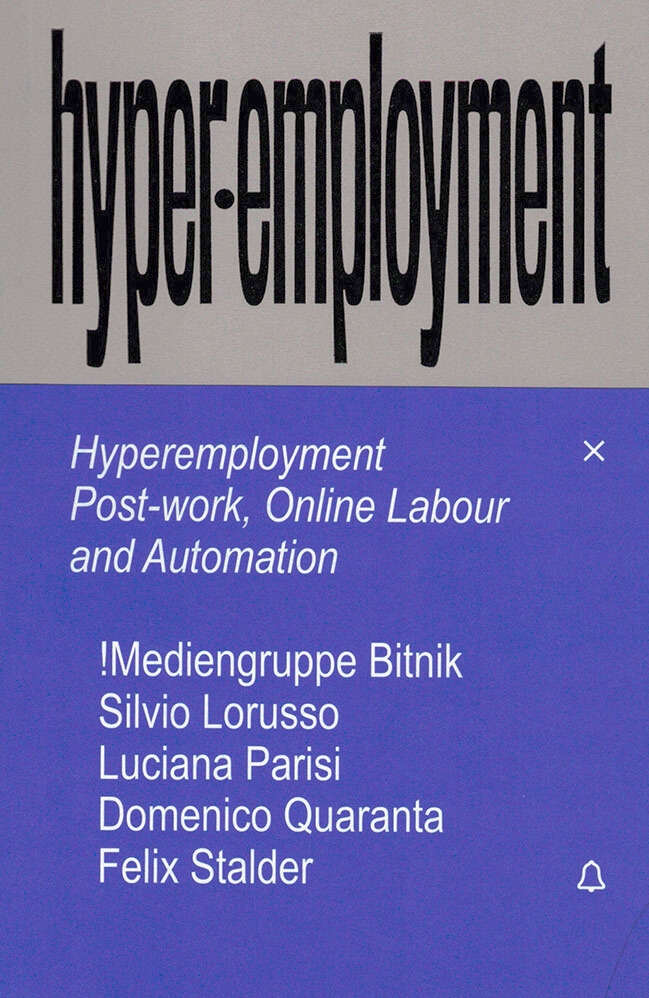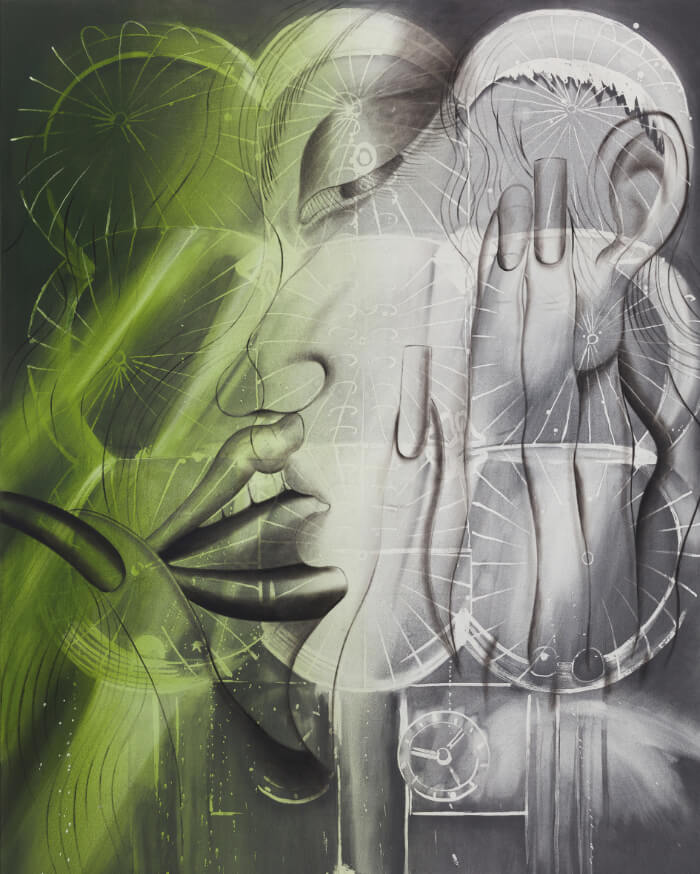
hyper-employment
Domenico Quaranta ed., Janez Janša ed.
Hyperemployment – Post-work, Online Labour and Automation is an attempt to scrutinise and explore some of these issues. A catchphrase borrowed from media theorist Ian Bogost, describing “the Exhausting Work of the Technology User,” hyperemployment allows us to grasp a situation which the current pandemic has turned endemic, to analyse the present and discuss possible futures.
Edited by Domenico Quaranta and Janez Janša, featuring words by !Mediengruppe Bitnik (Carmen Weisskopf and Domagoj Smoljo) and Felix Stalder, Silvio Lorusso, Luciana Parisi, and Domenico Quaranta and works by !Mediengruppe Bitnik, Danilo Correale, Elisa Giardina Papa, Sanela Jahić, Silvio Lorusso, Jonas Lund, Michael Mandiberg, Eva and Franco Mattes, Anna Ridler, Sebastian Schmieg, Sašo Sedlaček, and Guido Segni.
Language: English






